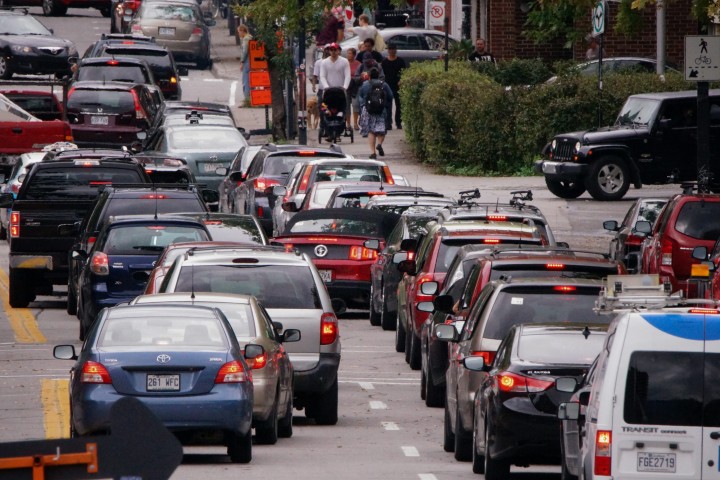People who cycle to work or school are likely to have sunnier dispositions than those who drive or take transit, according to a new study out of McGill University.

“The strain of the daily commute can negatively impact performance at work,” the study states.
READ MORE: Bike lanes around the world: Where mere paint won’t do it
Using data from the 2013 McGill Commuter Survey, the study examined punctuality and energy levels of commuters, depending on their modes of transportation.
Drivers were the most likely to feel sluggish at work, while bus riders were the most likely to be late.
Cyclists weren’t just more likely to start the day on the right foot, data showed, they’re also most likely to be on time which helps alleviate stress.
READ MORE: Move over motorists, Halifax gets first protected bike lane
“They’re much more on time, they feel more energized when they arrive to work or school,” said study co-author Ahmed M. El-Geneidy, an associate professor at McGill’s School of Urban Planning. “That’s the main difference that you see.”
The one catch — weather. Regardless of your mode of transport, poor weather condition will slow you down and likely add to the stress of the commute.
The study’s results weren’t a shock to researchers. They’re optimistic the growing evidence of the benefits of active transportation will spur people, employers and policy makers to think differently.
“We need to start having much stronger programs to encourage people to cycle,” said El-Geneidy.
“In some cases, cycling is not the best — not everybody is going to cycle in the winter — but let’s try for the rest of the year.”
Parents can start by encouraging their children to cycle, said El-Geneidy. Meanwhile, it’s a no-brainer for employers to offer incentives for employees to bike to work.
“This is something that’s going to give us a return on investment in productivity, in energy at work, people coming on time,” said El-Geneidy.
READ MORE: Montreal unveils new safety awareness campaign for cyclists
Finally, governments should invest more money in cycling infrastructure, along with roads and public transit.
Even $10 million to cities for cycling infrastructure would be a good start, said El-Geneidy: “It will go a long way.”
The study, On time and ready to go: An analysis of commuters’ punctuality and energy levels at work or school, will be published in the February 2017 issue of the journal Transportation Research Part F: Traffic Psychology and Behaviour.







Comments